In recent years, Taipei has become a bustling hub of activity and excitement, particularly during the holiday season. As the legislation regarding public holidays undergoes significant changes, both residents and travelers should be well-informed about what this means for experiencing the vibrant city. This article delves into the specifics of these holiday openings and their impact on daily life, tourism, and culture in Taipei. The intriguing evolution of public holidays presents a unique opportunity to explore the city’s rich heritage and modern vibrancy.
New Legislative Changes and Their Impact on Holidays in Taipei
The Legislative Yuan’s recent decision to pass a new law granting additional national holidays has sparked significant discussions across Taiwan. With an increasing emphasis on cultural heritage, this move is seen as a nod to Taiwan’s diverse history and modern aspirations. The new law has added four public holidays, including the day before Lunar New Year’s Eve, Confucius’ Birthday, Taiwan Retrocession Day, and Constitution Day.
The expanded holiday list means that both public and private sector employees can now enjoy a more enriched holiday schedule. Previously, the celebration of Labor Day was mainly confined to the private sector. The new legislation has broadened its scope, ensuring uniformity in holiday privileges across all sectors. This level of inclusivity aims to foster a unified sense of celebration and rest amongst Taiwan’s workforce.
Through the lens of these holidays, one can appreciate the cultural synthesis present in Taiwan. For instance, Confucius’ Birthday celebrates traditional educational values, while Taiwan Retrocession Day marks a significant political milestone. These holidays reflect not only historical events but also underline the cohesive cultural identity of Taiwan and its efforts to honor diversity.
The addition of holidays like Constitution Day is key to enhancing national unity. Constitution Day, falling on December 25, aligns with the celebrations of Christmas, providing a festive overlap that highlights Taiwan’s unique blending of Eastern and Western influences. Such holidays become crucial community bonding experiences, contributing to a more harmonious social fabric.
On a practical level, these changes mean that businesses, especially in the hospitality and tourism sectors, will need to adjust operational strategies to accommodate these new holiday dynamics. Travel agents, for example, may introduce tailored holiday packages that capitalize on these specific, culturally rich days, guiding tourists through a deepened understanding of Taiwan’s traditions.
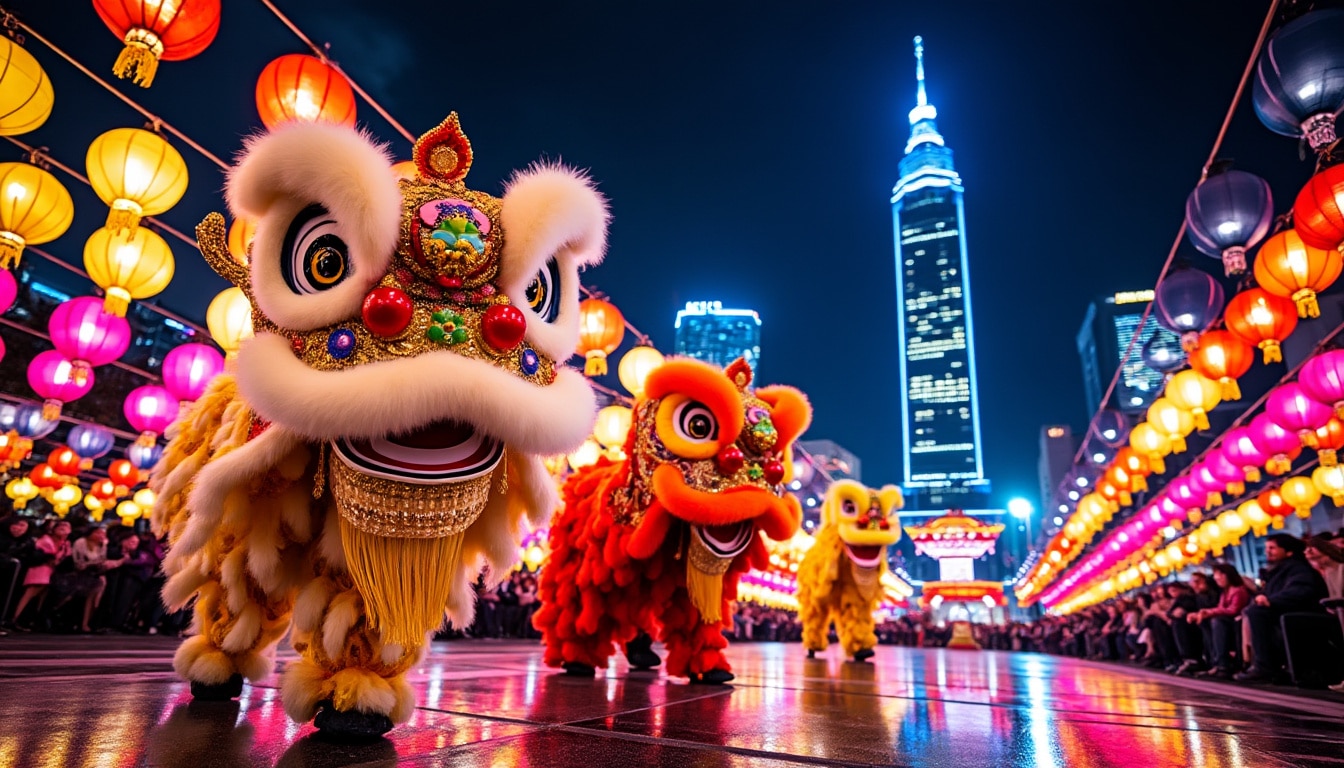
The holiday expansion also allows for more strategic planning by the city’s numerous cultural landmarks and museums. Venues like the Taipei Fine Arts Museum and the National Palace Museum can anticipate and prepare for increased visitor numbers, potentially organizing special exhibitions that align with each holiday’s theme.
While these changes introduce new dynamics, they build upon the existing framework of public holidays determined by the Ministry of Labor through the Labor Standards Act. The Ministry of the Interior will continue to regulate these holidays, ensuring consistency and clarity through comprehensive guidelines.
Exploring Taipei During the New Holiday Schedule
With the enriched holiday calendar, Taipei offers an even more diverse array of activities and experiences than ever before. For both locals and tourists, the opportunity to explore this vibrant city during its many celebrations presents unique adventures and opportunities to connect with Taiwan’s cultural heritage.
One of Taipei’s main attractions is its diverse array of night markets, a staple in the city’s vibrant street food scene. The Shilin Night Market is a must-visit for anyone looking to experience the pulse of Taipei’s nightlife. During holidays, the market features special festive dishes and expanded hours to accommodate holiday revelers.
Another major destination during holiday periods is Taipei 101. Standing as one of the world’s tallest buildings, this architectural marvel offers panoramic views of Taipei, enchanting visitors with its blend of modernity and tradition. Special holiday events at Taipei 101, such as firework displays or cultural exhibitions, further elevates the festive mood.
Beyond iconic landmarks, Taipei’s urban parks offer a serene retreat from the bustling city life. The Huashan 1914 Creative Park and its vibrant cultural scene is another fantastic destination, often hosting special events that reflect the multifaceted nature of Taiwanese culture.
For art lovers, the Taipei Fine Arts Museum showcases both contemporary and traditional art forms, with special exhibits often coinciding with holiday celebrations. The museum offers an immersive experience into the art world of Taiwan and beyond. During the newly introduced holiday periods, these special exhibitions emphasize holiday themes, providing a deeper cultural understanding for visitors.
Similarly, the Xinyi Shopping District, rivaling any major shopping area in the world, provides a paradise for shoppers looking to find everything from international brands to local boutiques. During holiday times, festivities often include special sales, events, and decorations that transform the shopping experience into a city-wide celebration.
Of course, a discussion of Taipei’s holiday offerings would be incomplete without mentioning its iconic culinary scene. Din Tai Fung, known worldwide for its exquisite dumplings, becomes a focal point for gastronomic enthusiasts. As holiday visitors flock to Taipei, a visit to this renowned restaurant allows one to savor traditional Taiwanese cuisine in its most celebrated form.
Exploration in Taipei does not end there. Places like the Taipei City Mall, an underground network of shops and dining, become hotspots for holiday activities, offering an extensive variety of entertainment and shopping options.
For those wanting to fully grasp the pulse of the city during these new holiday times, strategic planning and awareness of key hotspots are essential. Resources such as visitor guides and online forums will help both tourists and residents alike navigate the city’s vibrant holiday landscape.
| Holiday Name | Date | Significance |
|---|---|---|
| Lunar New Year | February 10 | Traditional New Year Celebration |
| Confucius’ Birthday | September 28 | Teachers’ Day in Taiwan |
| Retrocession Day | October 25 | Return of Taiwan to China after World War II |
| Constitution Day | December 25 | Celebrates Taiwan’s constitution |
The Role of Cultural and Historical Sites in Holiday Celebrations
At the heart of Taipei’s cultural richness are its numerous historical and cultural sites. These locations play a critical role during holiday celebrations, providing both a backdrop and a focus for events that reflect Taiwan’s multifaceted identity. The legislative changes in holiday scheduling enhance the opportunity for visitors and residents to engage more deeply with these sites.
The National Palace Museum, often referred to as one of the most comprehensive museums in Asia, features an extensive collection of Chinese artifacts and art pieces. During new holiday periods, the museum plans to host special exhibitions and cultural events that align with the themes of each holiday, offering visitors a glimpse into Taiwan’s rich historical tapestry.
Similarly, the Nelson Gallery offers an innovative space for contemporary art expressions. During holiday times, the gallery might feature exhibitions that challenge and intrigue audiences, encouraging conversations about Taiwan’s present and future cultural trajectories.
Historic sites around Taipei, such as the Chiang Kai-shek Memorial Hall, become focal points of national celebration during Constitution Day and Retrocession Day. These sites offer educational opportunities and are often venues for official ceremonies and public gatherings that honor Taiwan’s journey through its complex political history.
As Taipei integrates these holidays into the city’s rhythm, public spaces and cultural institutions embrace their expanded roles as custodians of cultural dialogue. The involvement of these spaces in holiday celebrations creates a dynamic cultural circuit that enriches the visitor experience.
Overall, the alignment of holiday themes with the narratives presented by these cultural and historical sites allows for a synchronized celebration of Taiwan’s past, present, and future. Engaging with these locations during holidays provides a richer, more nuanced understanding of Taiwan’s identity and its place in the broader Asian context.
Understanding the Economics of Holiday Scheduling
The incorporation of additional holidays presents both opportunities and challenges from an economic perspective. Taipei’s tourism and retail industries anticipate notable impacts due to increased holiday traffic, while the overall economy must adapt to shifts in productivity and labor dynamics.
As retailers prepare for the influx of customers during extended holidays, the business landscape in Taipei becomes increasingly dynamic. Extended holidays mean that more consumers have time to engage in shopping and leisure activities, significantly boosting retail sales during peak seasons.
Additionally, hospitality and tourism sectors are poised to benefit from these changes. Hotels anticipate higher occupancy rates as both domestic and international tourists take advantage of holiday travel opportunities. Restaurants and event planners also expect increased patronage, aligning special menus and events with the thematic elements of each holiday.
While there is an economic boon for the service sector, it’s essential to acknowledge the potential challenges in maintaining productivity across industries that cannot afford extended operational pauses. Balancing service continuity with employee welfare is crucial in ensuring a smooth transition for businesses adapting to this new holiday landscape.
Moreover, the changes to holiday scheduling offer an opportunity for strategic marketing initiatives. By tapping into holiday themes, businesses can craft campaigns that resonate with both the local populace and international visitors, enhancing brand visibility and customer engagement.
The intricate balance between economic gain and operational practicality remains a focal point of discussion among Taipei’s business leaders. Resource allocations, strategies for peak-time staffing, and customer service enhancements are critical areas needing attention to optimize the benefits of the new holiday schedule.
| Sector | Holiday Impact 📈 | Strategies |
|---|---|---|
| Retail | Increased Sales | Holiday Promotions |
| Tourism | Higher Visitor Numbers | Special Packages |
| Hospitality | Increased Bookings | Seasonal Menus |
| Transport | Increased Demand | Additional Services |
The potential for growth in these sectors becomes clear as Taipei positions itself as a destination for holiday travel. Additionally, strategic economic policies by the government will guide businesses in maximizing these opportunities while addressing any inherent challenges.
Holiday Tourism in Taipei: Practical Tips for Visitors
For tourists planning to visit Taipei during its expanded holiday periods, several practical considerations can enhance the overall experience. These tips will ensure that visitors fully enjoy the city’s vibrant celebrations and cultural offerings.
1. Transportation: Making travel arrangements well in advance is crucial, as increased holiday traffic can lead to sold-out flights and accommodations. Visitors should consider using the Taipei Main Station as a central hub, due to its extensive rail and bus connections, making it easier to reach various parts of the city.
2. Exploring Cultural Events: Engaging in local events, such as traditional parades and festival markets, offers a unique glimpse into Taipei’s rich cultural heritage. Venues like the Old Street District and temple fairs provide immersive experiences that cannot be missed.
3. Dining Experience: A visit to Din Tai Fung is highly recommended. Other culinary hotspots include local food stalls, particularly at night markets like Shilin, where visitors can savor authentic Taiwanese street food infused with holiday flavors.
4. Shopping: Visitors should explore both traditional markets and modern malls, such as the Xinyi Shopping District, to take advantage of holiday deals. Special discounts and extended hours make for an optimal shopping experience.
- 🛍️ Schedule visits during weekday mornings to avoid crowds.
- 🍽️ Book restaurant reservations in advance.
- 🗺️ Use online resources to locate holiday-specific events.
Effective planning and awareness of the changes brought about by new holiday legislation will enable visitors to make the most of their time in Taipei. The city’s rich offerings provide a captivating blend of modern excitement and deep-rooted traditions, promising an unforgettable holiday experience.
FAQ on Taipei’s Holiday Openings
- Q: What are the new holidays added in Taipei?
- Q: How do these holidays affect public transportation in Taipei?
- Q: Are there special events at cultural sites during these holidays?
- Q: How can tourists benefit from the new holiday schedule?
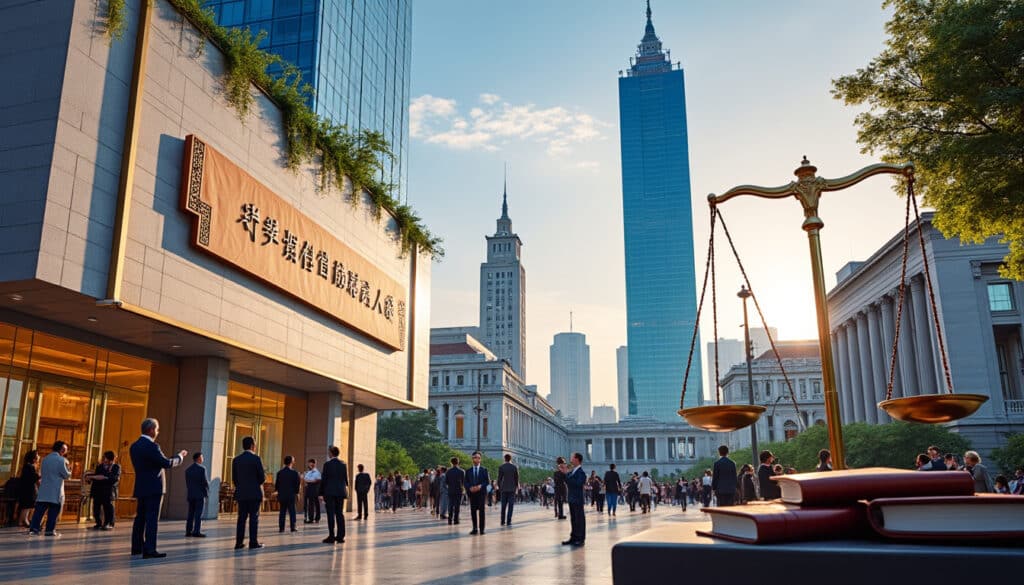
Legal Information and Rules in Taipei
When navigating the dynamic cityscape of Taipei, understanding the legal system and its rules is crucial for both residents and visitors. Taipei’s legal structure reflects a blend of historical influences and modern advancements, designed to maintain order and justice in…
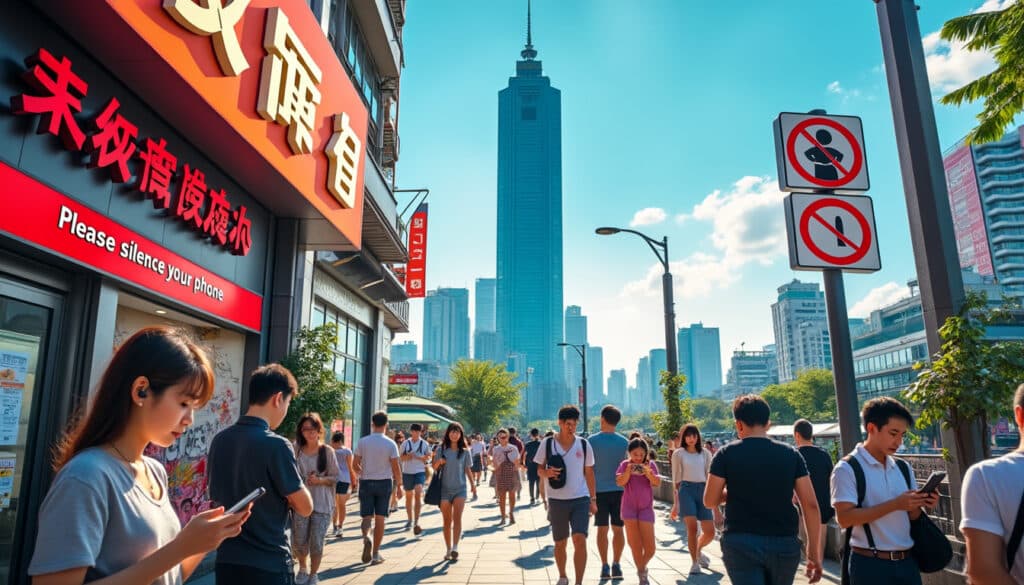
Calling and communication rules in Taipei
Taipei, a bustling city blending rich history with modern innovation, stands as a beacon of culture and commerce in Asia. Navigating this dynamic landscape requires more than just knowing landmarks; understanding the intricate calling and communication rules can make a…

Criminal status and entry to Taipei
Understanding laws and regulations can be a daunting task, especially when they influence one’s ability to travel internationally. For those considering a trip to Taipei, the vibrant capital of Taiwan, it’s crucial to be aware of how a criminal record…
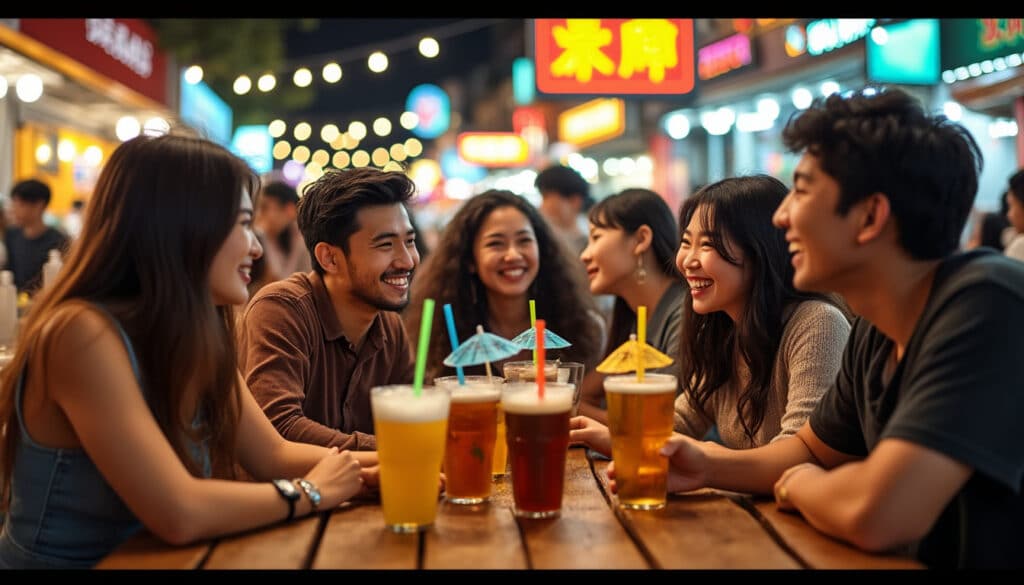
Drinking and age restrictions in Taipei
The conversation around drinking and age restrictions in Taipei is a complex and evolving topic, shaped by both cultural nuances and public health concerns. While the legal drinking age in Taiwan is currently set at 18, there are growing calls…
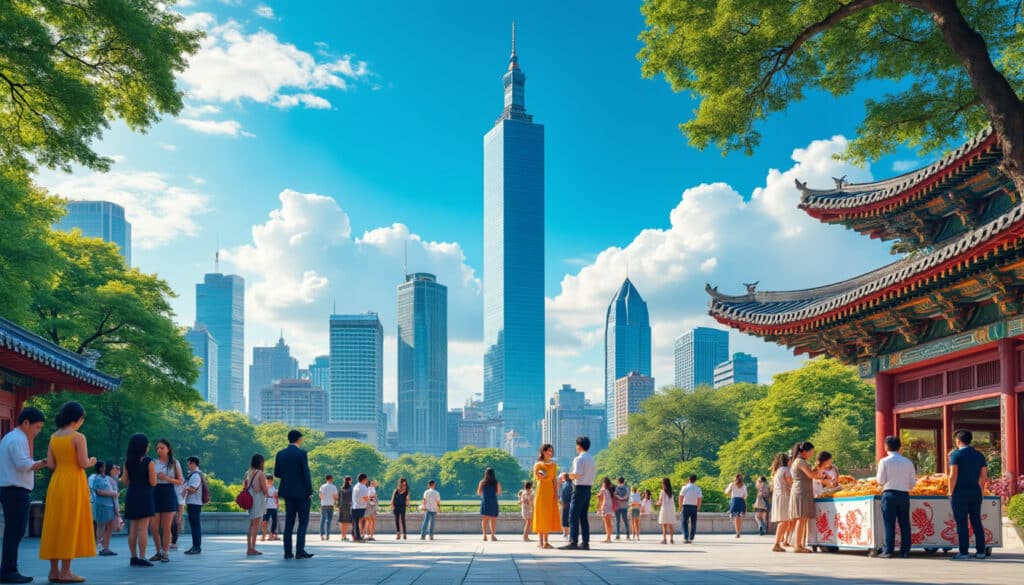
Moving to Taipei, the bustling capital city of Taiwan, is an adventure filled with vibrant city life, delicious street food, and a thriving cultural scene. However, relocating comes with its own set of challenges, especially when it comes to navigating…

Smoking, drugs, and red light laws in Taipei
In the vibrant city of Taipei, where modernity meets traditional charm, the legal landscape surrounding smoking, drugs, and the red-light district is evolving. The bustling streets offer a unique blend of cultural experiences, but understanding the local legal frame can…
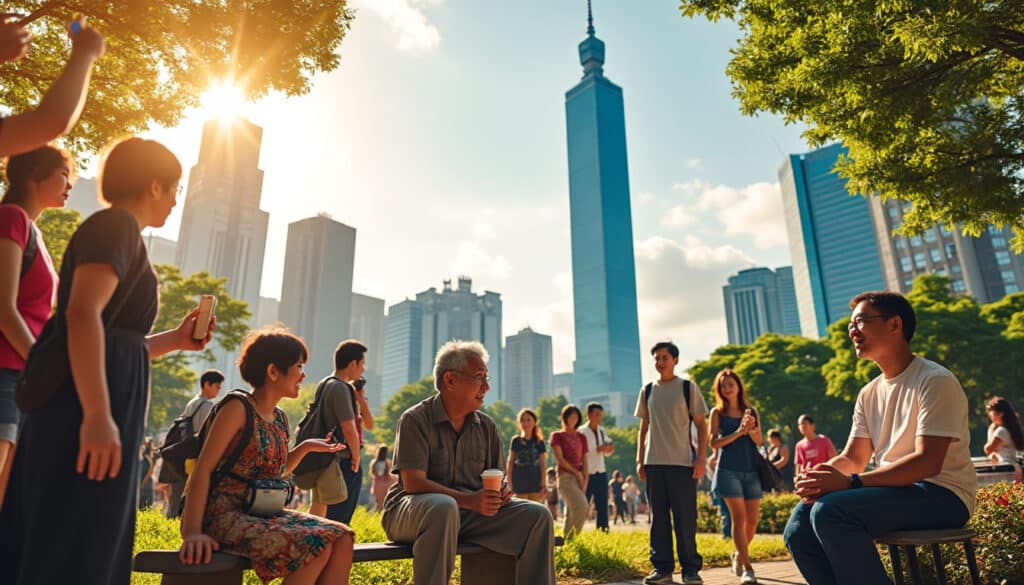
Social and discrimination issues in Taipei
As Taiwan continues to progress in various social avenues, the capital, Taipei, finds itself at the crossroads of modernity and tradition. Social justice and discrimination issues are topics of growing importance in the city, as cultural and demographic shifts mold…

